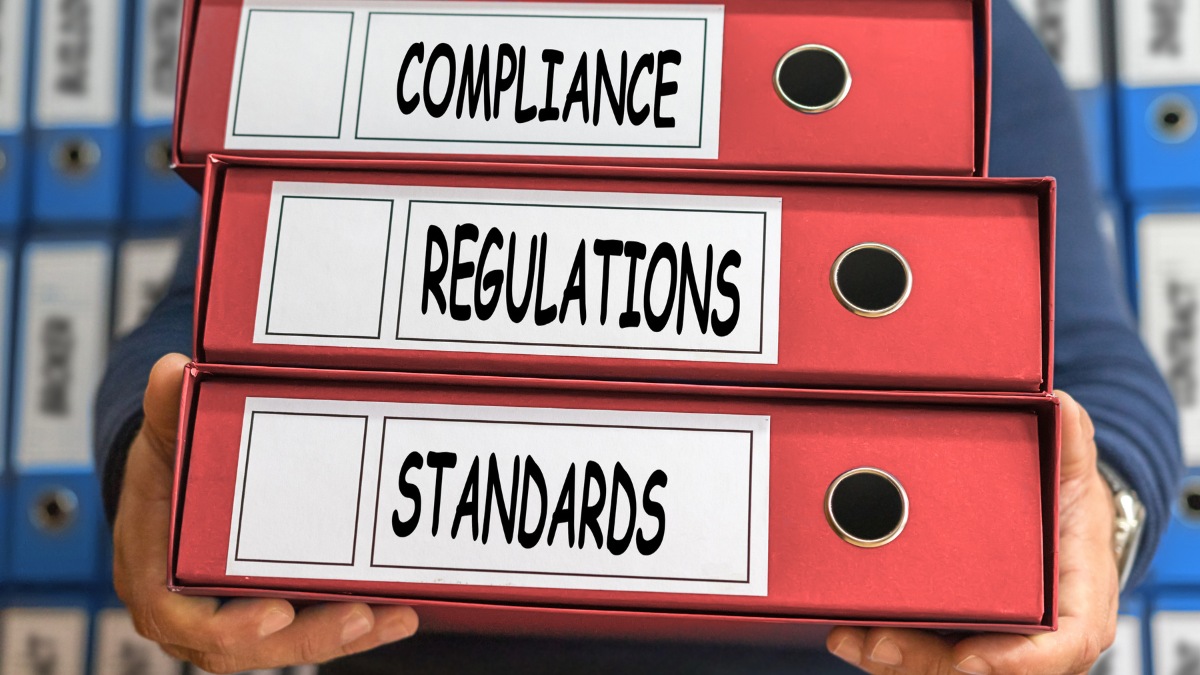Healthcare laws are complex, and compliance mistakes can cost providers heavily. A trusted healthcare regulatory compliance law firm in Florida helps navigate HIPAA, Anti-Kickback, Stark Law, EMTALA, fraud, and abuse regulations—protecting practices, patients, and reputations while ensuring long-term success in today’s evolving healthcare industry.
Continue readingHIPAA Compliance Checklist 2025: Step-by-Step Guide for Healthcare Providers
Stay ahead of compliance requirements with our HIPAA Compliance Checklist 2025. This step-by-step guide helps healthcare providers safeguard patient data, meet HIPAA requirements, and maintain trust in an evolving regulatory landscape. Learn privacy, security, and breach prevention best practices for 2025.
Continue readingHow to Get a Medical Card in Florida: The Ultimate 2025 Guide
Thinking about getting a medical card in Florida? This 2025 guide walks you through eligibility, costs, approved conditions, and how to apply step by step.
Continue readingWhat Are Compliance Standards in Healthcare?
Compliance standards in healthcare are rules and guidelines that healthcare organizations must follow to ensure patient safety, data security, and ethical practices. These standards help protect patients, improve care quality, and reduce risks for healthcare providers. In this article, we’ll break down what compliance standards in healthcare are, why they’re important, and how they work in simple, easy-to-understand terms.
Key Compliance Standards in Healthcare at a Glance
| Standard | Purpose | Who It Affects |
|---|---|---|
| HIPAA (Health Insurance Portability and Accountability Act) | Protects patient health information privacy and security. | Healthcare providers, insurers, and business associates. |
| OSHA (Occupational Safety and Health Administration) | Ensures safe working conditions for healthcare employees. | Hospitals, clinics, and healthcare facilities. |
| CMS (Centers for Medicare & Medicaid Services) | Sets rules for Medicare and Medicaid reimbursement and care quality. | Healthcare providers accepting Medicare/Medicaid. |
| GDPR (General Data Protection Regulation) | Protects patient data privacy for EU citizens (applies globally). | Organizations handling EU patient data. |
| HITECH Act (Health Information Technology for Economic and Clinical Health Act) | Promotes the use of electronic health records (EHRs) and strengthens HIPAA. | Healthcare providers and IT vendors. |
Why Are Compliance Standards in Healthcare Important?
Compliance standards in healthcare exist to protect both patients and healthcare organizations. They ensure that sensitive information, like medical records, is kept safe and private. They also help healthcare providers deliver high-quality care while avoiding legal and financial penalties.
For example, HIPAA compliance ensures that your medical history isn’t shared without your permission. OSHA standards make sure healthcare workers have safe environments to work in. Without these rules, healthcare systems could become chaotic and unsafe.
Key Compliance Standards in Healthcare Explained
1. HIPAA: Protecting Patient Privacy
The Health Insurance Portability and Accountability Act (HIPAA) is one of the most well-known compliance standards in healthcare. It focuses on protecting patient health information (PHI) from being disclosed without consent.
- What It Covers: Medical records, billing information, and any data that can identify a patient.
- Who Needs to Follow It: Hospitals, clinics, insurers, and even third-party vendors handling PHI.
- Why It Matters: Prevents data breaches and ensures patient trust.
2. OSHA: Keeping Healthcare Workers Safe
The Occupational Safety and Health Administration (OSHA) sets standards to protect healthcare workers from workplace hazards.
- What It Covers: Safe handling of chemicals, proper use of protective equipment, and preventing exposure to infectious diseases.
- Who Needs to Follow It: All healthcare facilities, including hospitals, labs, and nursing homes.
- Why It Matters: Reduces workplace injuries and ensures employee safety.
3. CMS: Ensuring Quality Care for Medicare and Medicaid
The Centers for Medicare & Medicaid Services (CMS) sets rules for healthcare providers who accept Medicare and Medicaid payments.
- What It Covers: Billing practices, patient care standards, and reporting requirements.
- Who Needs to Follow It: Hospitals, doctors, and other providers accepting Medicare/Medicaid.
- Why It Matters: Ensures patients receive high-quality care and prevents fraud.
4. GDPR: Protecting Patient Data Globally
The General Data Protection Regulation (GDPR) is a European Union law that protects the privacy of EU citizens’ data. It applies to any organization handling EU patient information, even if they’re based outside the EU.
- What It Covers: Consent for data collection, data access rights, and breach notifications.
- Who Needs to Follow It: Any healthcare organization dealing with EU patient data.
- Why It Matters: Enhances data privacy and builds patient trust.
5. HITECH Act: Promoting Electronic Health Records
The Health Information Technology for Economic and Clinical Health (HITECH) Act encourages the use of electronic health records (EHRs) and strengthens HIPAA rules.
- What It Covers: Incentives for EHR adoption, stricter penalties for HIPAA violations, and improved data security.
- Who Needs to Follow It: Healthcare providers and IT vendors.
- Why It Matters: Improves care coordination and protects patient data.
How to Implement Compliance Standards in Healthcare
Implementing compliance standards in healthcare requires a clear plan and ongoing effort. Here’s a simple step-by-step guide:
- Identify Applicable Standards: Determine which standards apply to your organization (e.g., HIPAA, OSHA, CMS).
- Conduct a Risk Assessment: Identify areas where your organization might fall short of compliance.
- Develop Policies and Procedures: Create clear guidelines for staff to follow.
- Train Employees: Educate your team on compliance requirements and best practices.
- Monitor and Audit: Regularly check your processes to ensure compliance is maintained.
- Update as Needed: Stay informed about changes to regulations and adjust your practices accordingly.
Also Read: HIPAA Compliance in Dental Practices: Why In-Servicing Your Team is Essential
Benefits of Following Compliance Standards in Healthcare
- Protects Patients: Ensures patient data is secure and care is delivered safely.
- Avoids Penalties: Reduces the risk of fines and legal issues.
- Builds Trust: Patients and employees feel confident in your organization.
- Improves Efficiency: Streamlined processes lead to better care delivery.
Common Challenges in Healthcare Compliance
While compliance standards in healthcare are essential, they can be challenging to implement. Some common issues include:
- Keeping Up with Changes: Regulations are constantly evolving, making it hard to stay updated.
- Resource Constraints: Smaller organizations may struggle with the cost of compliance.
- Employee Resistance: Staff may resist changes to their workflows.
To overcome these challenges, focus on continuous education, invest in compliance tools, and foster a culture of accountability.
Final Thoughts
Compliance standards in healthcare are the backbone of a safe, efficient, and trustworthy healthcare system. By understanding and implementing these standards, healthcare organizations can protect patients, avoid legal issues, and deliver better care.
Whether you’re a healthcare professional or a patient, knowing about these standards helps you appreciate the importance of compliance in keeping everyone safe and healthy.
Key Takeaways
- Compliance standards in healthcare ensure patient safety, data security, and ethical practices.
- Key standards include HIPAA, OSHA, CMS, GDPR, and the HITECH Act.
- Implementing compliance requires planning, training, and ongoing monitoring.
- Following these standards protects patients, avoids penalties, and builds trust.
By following this guide, you now have a clear understanding of what compliance standards in healthcare are and why they matter. Stay informed, stay compliant, and contribute to a safer healthcare system for all.
Also Read: What Should Peptide Manufacturers Do if They Receive an FDA Warning Letter?
The Vital Importance of Regulatory Compliance in Healthcare
In the realm of healthcare, regulatory compliance is a cornerstone of operations. It involves adhering to laws, guidelines, and standards established by various governmental and industry authorities. Regulatory compliance in healthcare is paramount, ensuring the safety of patients, the integrity of the healthcare system, and the prevention of legal and financial consequences. In this blog, we will explore why regulatory compliance in healthcare is of utmost importance, highlighting the role of regulatory compliance solutions and consultants in maintaining this critical aspect of the industry.
Patient Safety and Quality of Care
Perhaps the most crucial reason for regulatory compliance in healthcare is patient safety and the delivery of high-quality care. Regulations exist to ensure that healthcare providers meet specific standards that protect patients from harm, whether through medical errors, substandard facilities, or unethical practices. Compliance with regulations directly correlates with improved patient outcomes and a reduced risk of adverse events.
Legal Consequences
Failure to comply with healthcare regulations can result in severe legal consequences, including fines, penalties, and even criminal charges. Healthcare organizations that neglect compliance put their reputation and financial stability at risk. Regulatory compliance solutions help mitigate these risks by establishing robust systems and processes to adhere to regulatory requirements.
Financial Stability
Regulatory compliance is closely linked to financial stability in healthcare. Non-compliance can lead to fines and penalties that strain a healthcare organization’s resources. Additionally, healthcare providers that rely on government reimbursements, such as Medicare and Medicaid, must adhere to specific regulations to continue receiving payments. Regulatory compliance consultants play a pivotal role in helping organizations maintain financial health by navigating complex regulations.
Maintaining Reputation and Trust
Trust is essential in healthcare. Patients must trust their healthcare providers to deliver safe and effective care. Non-compliance can result in negative publicity, eroding patient trust and damaging an organization’s reputation. Regulatory compliance helps healthcare organizations maintain the trust of their patients and the broader community they serve.
Efficient Operations
Regulatory compliance solutions and consultants assist healthcare organizations in streamlining their operations. By ensuring adherence to regulations, these solutions help identify inefficiencies, reduce waste, and optimize processes. This not only improves patient care but also contributes to cost savings.
Data Security and Privacy
In an era of digital healthcare, protecting patient data is paramount. Regulatory compliance, such as the Health Insurance Portability and Accountability Act (HIPAA) in the United States, establishes guidelines for data security and privacy. Failure to comply with these regulations can result in data breaches, exposing patients to identity theft and healthcare fraud.
Avoiding Penalties
Healthcare regulatory bodies often impose significant penalties for non-compliance. These penalties can include fines, sanctions, or even the revocation of licenses and certifications. Regulatory compliance consultants specialize in helping healthcare organizations understand and meet these regulations to avoid such penalties.
Staying Current with Evolving Standards
Healthcare regulations are not static; they evolve to address emerging challenges and technologies. Staying current with these changes is a complex task. Regulatory compliance consultants are well-versed in the latest regulatory developments, ensuring that healthcare organizations remain up-to-date and compliant.
Regulatory compliance in healthcare is not a mere checkbox; it’s a fundamental aspect that ensures patient safety, maintains financial stability, and upholds trust within the industry. Regulatory compliance solutions and consultants play a crucial role in helping healthcare organizations navigate this complex landscape. By adhering to regulations, healthcare providers not only protect themselves from legal and financial consequences but also ensure the well-being and trust of their patients. In an ever-changing healthcare landscape, staying compliant is not just important—it’s essential.
What Is Regulatory Compliance in Healthcare?
Maintaining compliance is a critical factor for healthcare companies and those who work in the healthcare industry. Many federal laws and statutes not only define what it means to be out of compliance but also what the penalties are for violation of compliance standards.
When regulatory standards are not maintained, healthcare professionals may face legal charges and also be ordered to pay heavy fines and potentially lose their ability to practice their profession in the medical industry.
What Is Healthcare Compliance?
Healthcare compliance in the medical and dental industry is defined by maintaining federal regulations with a focus on high ethical standards in patient care.
On a day-to-day basis, this can look like continually assessing and updating processes in order to prevent fraud, patient abuse, and waste across departments.
Some of the laws that govern healthcare compliance include the following:
- Health Insurance Portability and Accountability Act of 1996(HIPAA): HIPAA dictates how healthcare organizations may store, share, and use private patient medical information and defines the fines and penalties imposed for violations.
- Health Information Technology for Economic and Clinical Health Act (HITECH): HITECH ensures that healthcare providers comply with HIPAA mandates and maintain security protocols in order to protect patients. Penalties are set for violations as well.
- Anti-Kickback Statute(AKBS): This federal law prevents anyone from giving or receiving anything of value, including money, in exchange for facilitating the sale of healthcare services or treatment, especially when federal healthcare dollars are covering the cost of that treatment. Violations are criminal in nature.
- Stark Law: Similar to AKBS, the Stark Law forbids doctors from referring patients to other physicians or service providers with whom they have a financial relationship, especially if the services are paid for by Medicare. Penalties are outlined for violations.
- Patient Safety and Quality Improvement Act of 2005 (PSQIA): The PSQIA protects employees in healthcare settings who report medical care violations in the workplace that put patient safety at risk.
- Emergency Medical Treatment and Labor Act(EMTALA): Specific to hospitals, this law requires that stabilizing treatment be provided to all who enter in need of treatment regardless of their ability to pay for medical services.
There are also laws that pertain to specific jobs and address issues of patient understanding of care and options, ending a medical relationship with a patient, and provision of care.
To ensure that your organization is in full compliance with all federal regulatory laws and standards, it is a good idea to meet with a legal team who is up to date on current regulations.
How to Maintain Regulatory Healthcare Compliance
If you would like to learn more about how to maintain regulatory healthcare compliance or improve compliance standards within the company, contact Florida Healthcare Law Firm today. We can help you ensure the following:
- Current policies and procedures are up to date
- Education and training are available to employees to ensure continued compliance
- Reporting, monitoring, and auditing are consistent and thorough
- Enforcement measures are in place
Call Florida Healthcare Law Firm today to set up your initial consultation.
DME Scheme of Greed Knows No Bounds
 By: Susan St. John
By: Susan St. John
In yet another take-down of an illicit scheme to defraud the Medicare Program and ChampVA, as well as other insurers, Patsy Truglia has been sentenced to 15 years in federal prison. He has also had assets forfeited since these assets were acquired with money from his ill-gotten fraud scheme. In total, Mr. Truglia and his co-conspirators collected approximately $18.5 million from Medicare, ChampVA, and insurance using a scheme of telemarketing, telemedicine, and multiple DME providers or “store fronts.”
The scheme used telemarketers to collect beneficiaries personal and medical information to create orders for DME products such as knee, back, and wrist braces. These orders were then provided to telemedicine practitioners for signature – often without a valid telehealth communication. In essence, there was no attempt at having a practitioner exercise independent judgment as to the medical necessity of these DME products. Instead, these practitioners were paid for their signatures on the pre-filled order forms as part of the “scheme of greed.” From January 2018 to 2019, this scheme of greed resulted in approximately $12 million in payment to Truglia and his co-conspirators.Continue reading
Florida Medical License Renewal
In the state of Florida, medical professionals are required to renew their licenses every two years.
The idea is to ensure that the individual is still capable of performing their job, remains current on training and other relevant certifications, and has no outstanding issues in terms of investigations or job performance.
The medical license renewal process in Florida is relatively simple in most cases, but if there are any outstanding issues or unresolved questions, it can take some maneuvering to finalize the renewal.
Keep It Simple: Renew Your Florida Medical License Online and Early
As long as you do not have to change the status of your license, your license status is not “Military, Active,”, “Delinquent, Active,” or “Delinquent, Inactive,” you should not have a problem renewing your license online. Simply follow the link for your profession on the Florida Board of Medicine website to complete the process online.
Additionally, if you choose to renew your medical license in Florida before it expires, you have the benefits of getting the lowest fee options available.
Should you attempt to renew your license after your license expires, the fee can more than double, and if you try to new your Florida medical license more than 120 days after expiration, at which point you are considered Notified Delinquent, the fee can rise another 25 percent.
Requirements for Renewing Via a Florida Medical License by Mail
If you’re “Military, Active,” need to change your name on your license, need to change your status, or need to pay with a check or cashier’s check rather than a credit card, you can apply for medical license renewal by mail.
All the same dates and deadlines apply, so it’s important to keep that in mind when you choose the timing to mail the application for renewal, leaving enough time for it to arrive in advance of the deadline.
Florida Medical License Renewal Requirements
Whether you file online or by mail, you will need the correct forms, fully filled out and signed, as well as the required fee, including late fees if applicable.
However, if your status is currently “Delinquent, Active” or “Delinquent, Inactive,” your process will be slightly more complex.
You will need to contact the Florida Board of Medicine to discuss the details of your case and what is required of you going forward. Depending on the issue causing your status disruption, you may need to take classes, acquire referral letters, work with a mentor, or provide other services.
If you have already completed the requirements necessary to clear your status and renew your medical license, it may be just a matter of documenting your compliance to move forward.
Help With Medical License Renewal in Florida
If you are running up against obstacles getting your medical license renewed in Florida and you need help, reach out to Florida Healthcare Law Firm today and find out how we can help you expedite the process.
OIG Revises Self-Disclosure Protocol
On November 8, 2021, The Department of Health & Human Services (HHS), Office of Inspector General (OIG) released a revised and renamed Provider Self-Disclosure Protocol (SDP), now known as the “Health Care Fraud Self Disclosure “protocol. The SDP was created in 1998, and the protocol can be used to voluntarily identify, disclose and resolve instances of potential fraud involving federal healthcare programs. As described on the OIG website, “Self-disclosures give persons the opportunity to avoid the costs and disruptions associated with a Government-directed investigation and civil or administrative litigation.”Continue reading
Genetic Testing: Be Hopeful but Wary
Genetic tests are valuable because they can provide important information to patients and their medical providers regarding diagnoses, treatment, and disease prevention. However, the rapid growth in the number of tests ordered, especially in light of the telemedicine expansion during the pandemic, has invited well-earned scrutiny to the industry.
Make no mistake: genetic testing is heavily regulated (and enforced). The Federal Anti-Kickback Statute, Eliminating Kickbacks in Recovery Act, and Commercial Insurance Fraud Law have all been used to prosecute unscrupulous marketers, call centers, and telemedicine providers in the last few months. Kickbacks in exchange for genetic specimens are just as illegal as kickbacks for patients. Three months ago, a Florida man was sentenced to 10 years in prison for conspiracy to commit health care fraud. His actions resulted in the submission of approximately $3.3 million in fraudulent claims to Medicare for genetic testing.Continue reading







